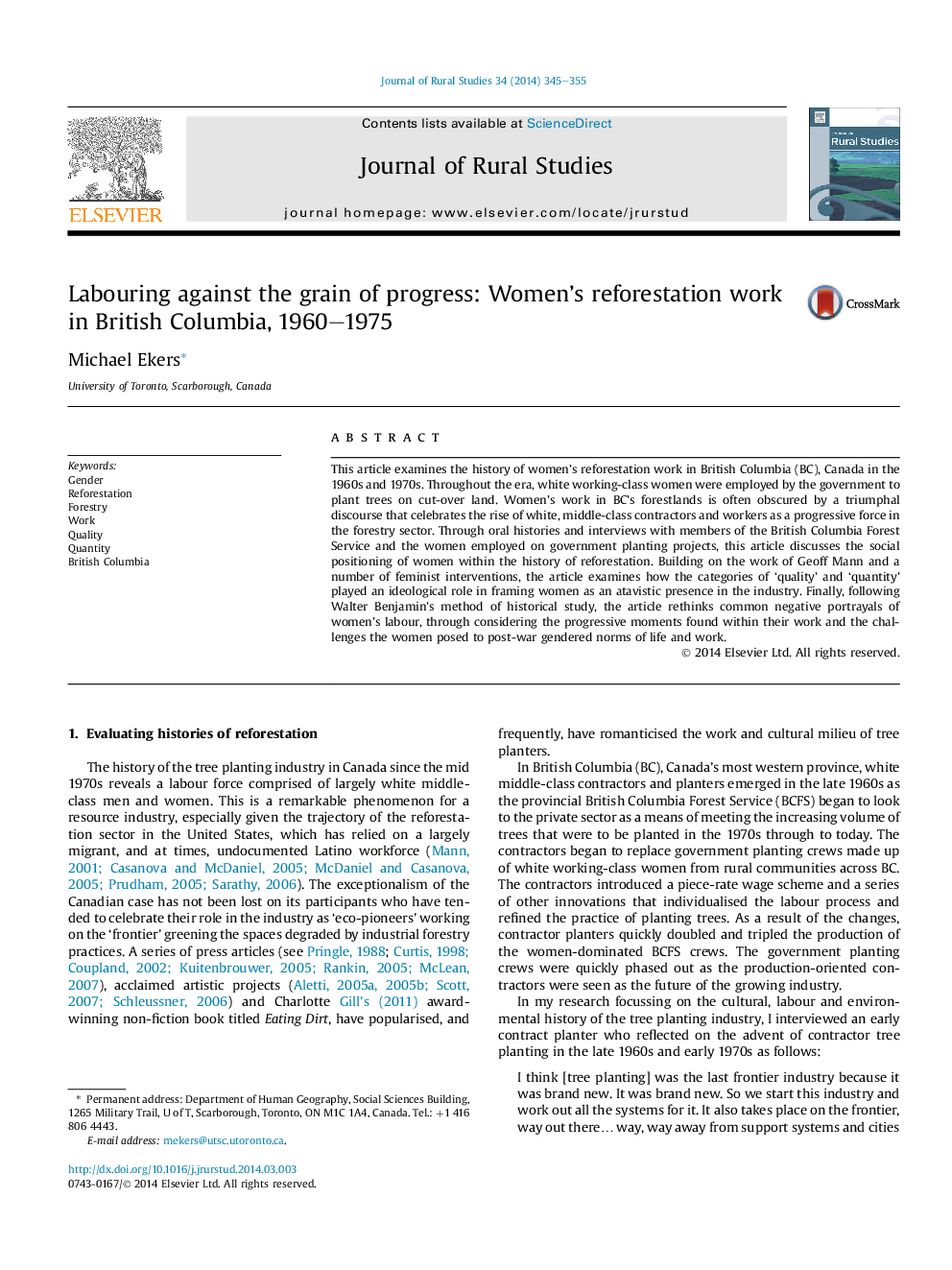| Article ID | Journal | Published Year | Pages | File Type |
|---|---|---|---|---|
| 6545853 | Journal of Rural Studies | 2014 | 11 Pages |
Abstract
This article examines the history of women's reforestation work in British Columbia (BC), Canada in the 1960s and 1970s. Throughout the era, white working-class women were employed by the government to plant trees on cut-over land. Women's work in BC's forestlands is often obscured by a triumphal discourse that celebrates the rise of white, middle-class contractors and workers as a progressive force in the forestry sector. Through oral histories and interviews with members of the British Columbia Forest Service and the women employed on government planting projects, this article discusses the social positioning of women within the history of reforestation. Building on the work of Geoff Mann and a number of feminist interventions, the article examines how the categories of 'quality' and 'quantity' played an ideological role in framing women as an atavistic presence in the industry. Finally, following Walter Benjamin's method of historical study, the article rethinks common negative portrayals of women's labour, through considering the progressive moments found within their work and the challenges the women posed to post-war gendered norms of life and work.
Related Topics
Life Sciences
Agricultural and Biological Sciences
Forestry
Authors
Michael Ekers,
